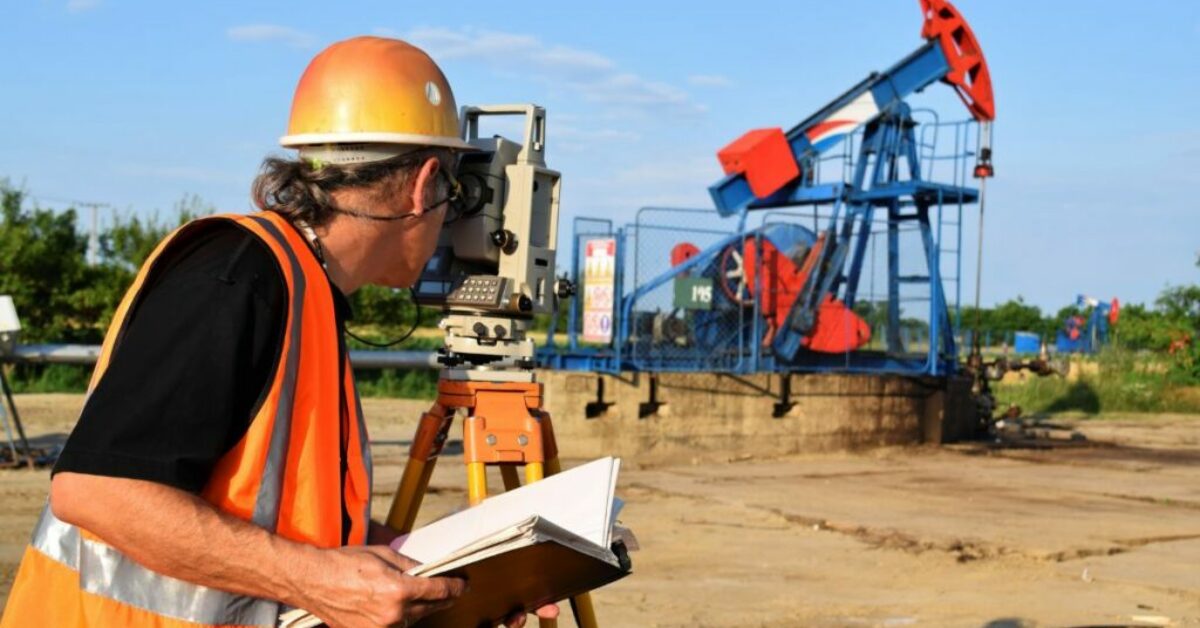How To Become A Petroleum Engineer?
Are you interested in pursuing a career that combines your passion for engineering with the field of oil and gas exploration and production? If so, then becoming a petroleum engineer may be the perfect career choice for you. This article will provide you with a comprehensive guide on the steps you need to take and the skills you need to acquire to become a successful petroleum engineer.
Steps To Becoming A Petroleum Engineer
The path to becoming a petroleum engineer is an exciting and challenging one. Petroleum engineers play a critical role in the energy industry, designing and developing methods for extracting oil and gas from the earth.
- Bachelor’s degree in Petroleum Engineering
The first step to becoming a petroleum engineer is to earn a Bachelor’s degree in Petroleum Engineering from an accredited institution. During your studies, you will learn the fundamental principles of petroleum engineering, including geology, drilling, reservoir engineering, and production technology. You will also learn about the latest technologies and techniques used in the industry, such as hydraulic fracturing and horizontal drilling.
- Gain Hands-on Experience
While earning your degree, it is essential to gain hands-on experience through internships and co-op programs. These opportunities allow you to work alongside experienced professionals and apply the knowledge you have learned in the classroom to real-world situations. You will also have the chance to network with industry professionals, which can be invaluable when it comes time to look for a job after graduation.
- Certification as a Professional Engineer (PE)
After earning your degree, the next step is to obtain certification as a Professional Engineer (PE). This certification is required to work as a Petroleum Engineer and demonstrates your knowledge and expertise in the field. To become a PE, you must pass the Fundamentals of Engineering (FE) exam and the Professional Engineering (PE) exam. These exams are challenging, but with the right preparation, you can succeed and advance your career in the field of petroleum engineering.
Once you have become a licensed PE, there are many opportunities for advancement in the field of petroleum engineering. You can work for oil and gas companies, consulting firms, or government agencies. You can also specialize in a particular area of petroleum engineering, such as drilling engineering or reservoir engineering.
With hard work and dedication, you can have a fulfilling and rewarding career as a petroleum engineer.
Skills Needed For Becoming A Petroleum Engineer
A petroleum engineer needs a diverse set of skills to work effectively in the industry. You need a solid foundation in math, physics, and chemistry, in addition to technical skills like geologic modeling, drilling engineering, and well completion design. You also need excellent analytical skills, critical thinking ability, and problem-solving aptitude.
Effective communication and teamwork are also critical in the petroleum engineering field. As a petroleum engineer, you will be working closely with geologists, drilling engineers, technicians, and other professionals. Being able to communicate effectively and collaborate seamlessly is essential for achieving project goals.
Another essential skill for petroleum engineers is adaptability. The industry is constantly evolving, and new technologies and techniques are being developed all the time. You need to be able to learn quickly and adapt to new situations and challenges.
Attention to detail is also crucial for petroleum engineers. You will be responsible for designing and implementing complex drilling and production systems, and even small errors can have significant consequences. You need to be meticulous in your work and always strive for accuracy.
Leadership skills are also valuable for petroleum engineers who aspire to management positions. As you progress in your career, you may be responsible for leading teams of engineers and other professionals. The ability to inspire and motivate others, make difficult decisions, and manage resources effectively is essential for success in these roles.
Finally, a passion for the industry is essential for becoming a successful petroleum engineer. The work can be challenging and demanding, but it is also incredibly rewarding. A love for the science and technology behind oil and gas exploration and production can help you stay motivated and engaged in your work.
What Is A Petroleum Engineer?
A petroleum engineer is a highly skilled professional who specializes in the exploration and production of oil and gas resources. These resources are crucial for powering our modern world, and petroleum engineers play a critical role in ensuring that we can access them efficiently and sustainably.
One of the key areas of expertise for petroleum engineers is drilling. They work to design and implement drilling programs that can reach deep below the earth’s surface to access oil and gas reservoirs. This involves analyzing geological data to identify the most promising locations for drilling, as well as developing drilling techniques that can safely and effectively extract the resources.
Another important area of focus for petroleum engineers is reservoir engineering. This involves studying the properties of oil and gas reservoirs, such as their size, shape, and composition, in order to optimize production. Petroleum engineers use a variety of techniques to analyze reservoirs, including computer modeling, well testing, and production data analysis.
Production engineering is another critical area of expertise for petroleum engineers. This involves designing and implementing processes for extracting oil and gas from reservoirs once they have been accessed through drilling. Petroleum engineers work to develop production techniques that can maximize the amount of resources that can be extracted, while minimizing environmental impact.
Finally, petrophysics is an area of specialization within petroleum engineering that focuses on the physical properties of rocks and fluids within reservoirs. Petrophysicists use a variety of techniques to analyze these properties, including well logging, core analysis, and seismic imaging. This information is then used to inform drilling and production decisions.
Overall, petroleum engineering is a complex and challenging field that requires a deep understanding of geology, engineering principles, and environmental considerations. Petroleum engineers play a critical role in ensuring that we can access the resources we need to power our modern world, while also minimizing environmental impact and ensuring sustainability for future generations.
The Benefits Of Working As A Petroleum Engineer
The petroleum engineering industry offers several benefits to individuals who want to pursue a career in the field. The industry provides individuals with excellent earning potential, job stability, and career advancement opportunities. Petroleum engineers also have the opportunity to work on exciting and rewarding projects, ranging from offshore drilling to discovering new sources of oil and gas resources.
One of the most significant benefits of working as a petroleum engineer is the earning potential. According to the Bureau of Labor Statistics, the median annual wage for petroleum engineers was $137,720 in 2020. This is significantly higher than the median annual wage for all occupations, which was $41,950 in the same year. Additionally, petroleum engineers often receive generous benefits packages, including health insurance, retirement plans, and paid time off.
Another benefit of working as a petroleum engineer is job stability. The demand for petroleum engineers is expected to grow by 3% between 2020 and 2030, which is about as fast as the average for all occupations. This means that there will continue to be a need for petroleum engineers in the years to come, providing individuals with job security and peace of mind.
Furthermore, petroleum engineers have the opportunity to work on exciting and rewarding projects. For example, offshore drilling projects can be challenging and require engineers to work in remote locations and harsh environments. However, these projects can also be highly rewarding, as they often involve discovering new sources of oil and gas resources that can power the global economy for years to come.
Moreover, the petroleum industry plays a vital role in powering the global economy. As a petroleum engineer, you have a significant impact on society, and your work contributes to keeping the world moving forward. Petroleum engineers are responsible for developing and implementing new technologies that make oil and gas production more efficient and environmentally friendly. This work is essential for ensuring that the world has access to the energy it needs to grow and prosper.
Working as a petroleum engineer offers several benefits, including excellent earning potential, job stability, and career advancement opportunities. Additionally, petroleum engineers have the opportunity to work on exciting and rewarding projects that contribute to powering the global economy. If you’re interested in pursuing a career in the petroleum industry, there’s never been a better time to get started.
Becoming a petroleum engineer requires a combination of education, experience, and skills. Pursuing a career in petroleum engineering can be challenging but highly rewarding, both intellectually and financially. By following the steps mentioned in this article, you can start your journey towards becoming a successful petroleum engineer and make a real impact in the world.




